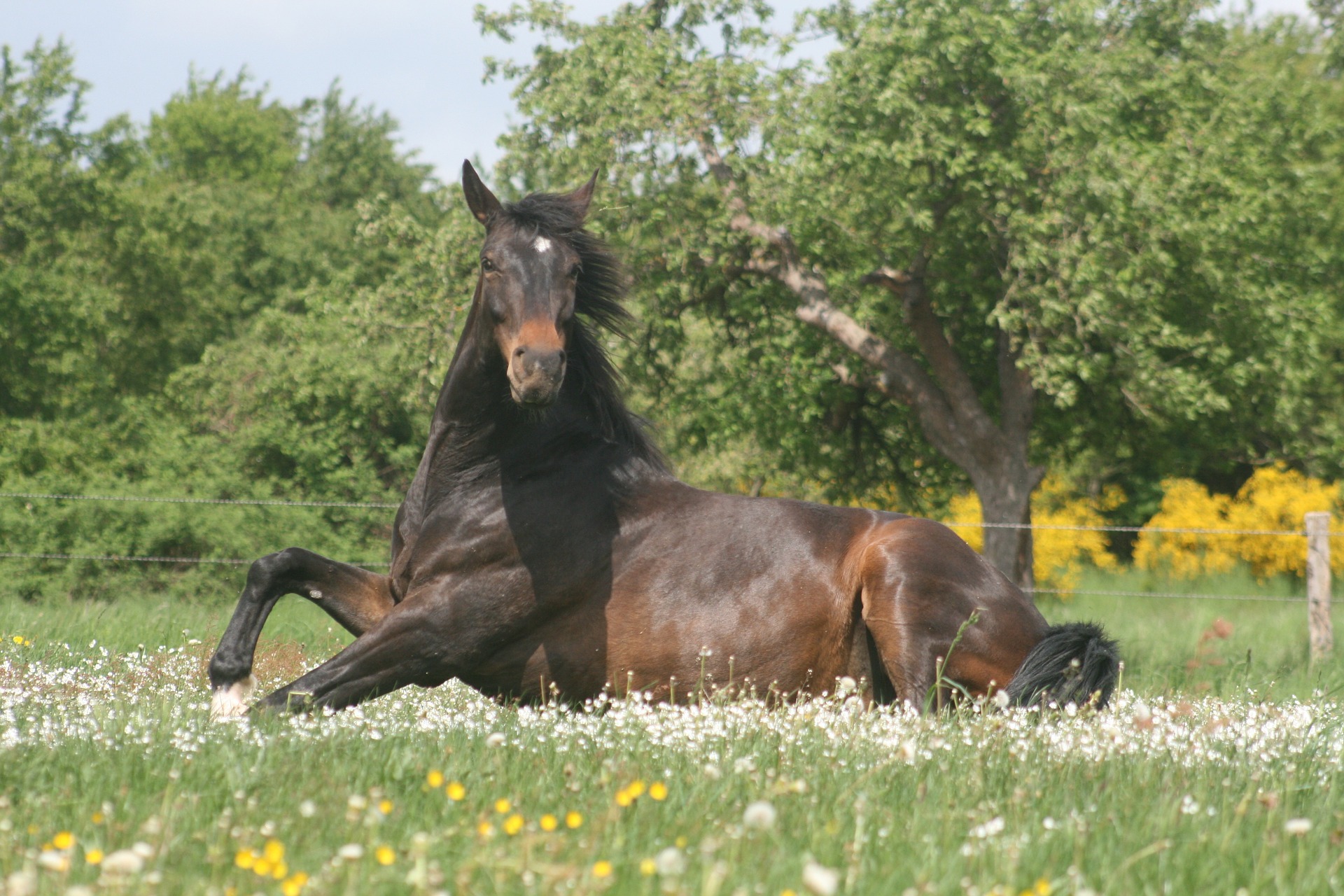Published 8th June 2018

Those of us unlucky enough to suffer from pollen allergies know just how horrid it can be! You want to go out and enjoy the sunshine, or dream about hacking through lush meadows on your horse (who in your dream is behaving perfectly and not at all over exuberant due to the sudden arrival of the rich grass). The reality is, you’re dosed up to the eyeballs on antihistamine and pouring in eye drops as fast as your puffy eyes can cry them out.
Horses can also suffer from pollen allergies over the spring and summer months. These can vary from horse to horse, manifesting in various ways including but not limited to:
- Coughing
- Nasal discharge
- Laboured breathing
- Increased breathing rate
- Nostril flaring
- Swallowing after coughing
- Decreased performance
- Hives
- Hair loss
- Skin abrasions
- Biting at affected areas
- Head shaking.
Knowing how to deal with these behaviours and help your horse through what is essentially an irritating and sometimes painful time for them can be tough. At EquiFeast we often say “What’s suitable for one horse, simply may not be suitable for another.” and this is very much the case when it comes to dealing with pollen allergies. Believe it or not, some breeds of horses have a genetic predisposition to be more sensitive to pollen – but that’s not to say that every Dutch Warmblood will show any of the above signs of pollen allergy.
Sadly there is no cure for pollen allergies, however there are ways that you can help relieve the symptoms.
Have you tried our unique and powerful immune support product Fight Back?
Need advice? Give one of our advisers a call on 01453 836974 or email advice@equifeast.com
Related articles:
Pollen Allergies – Top 11 ways to manage your horse’s pollen allergy
